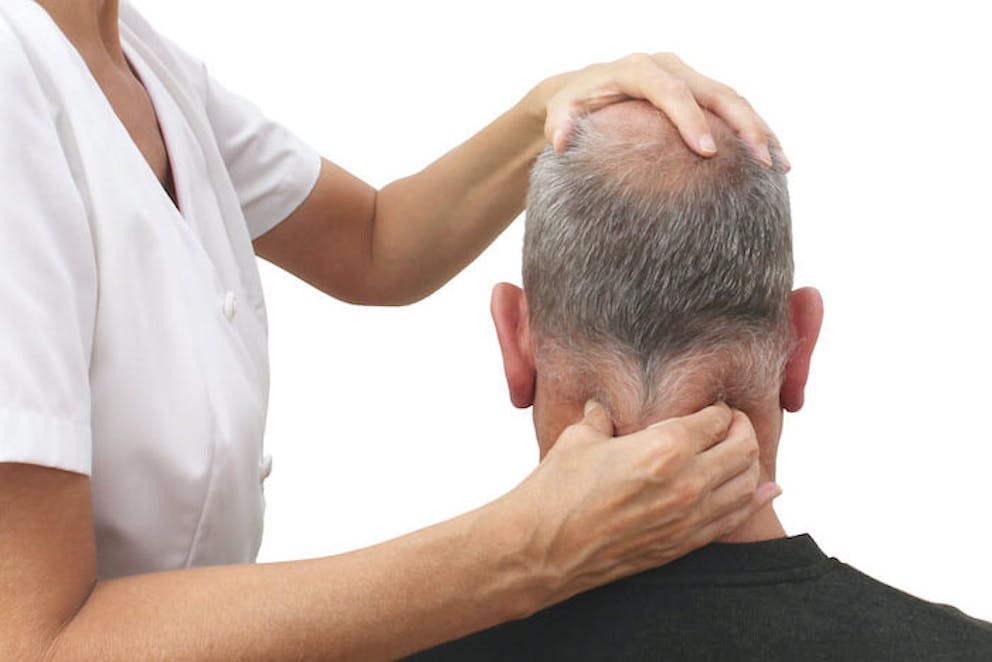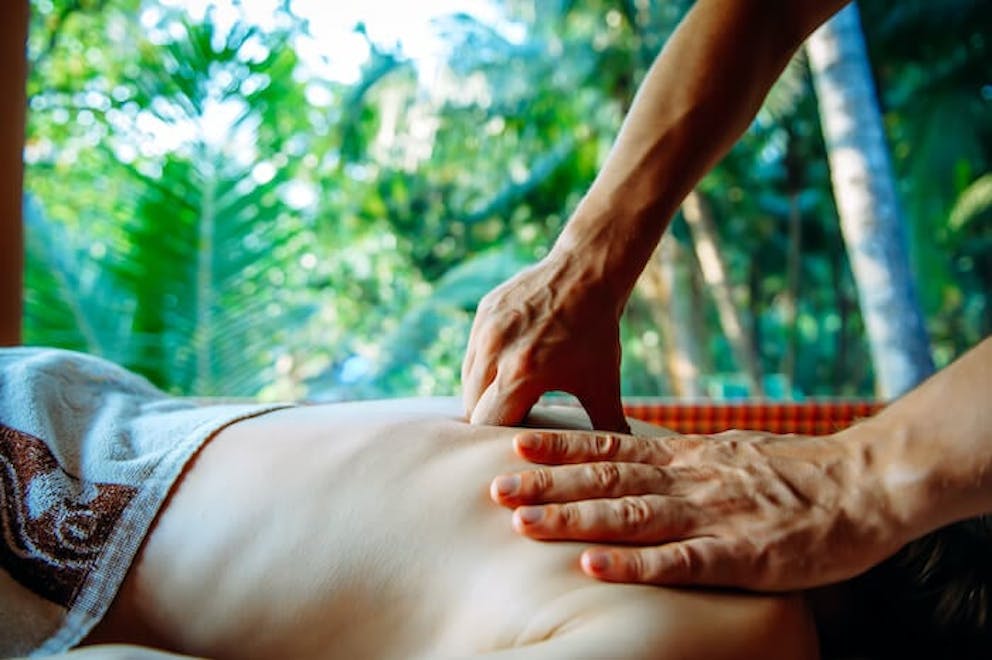Do This for Stress Now
What should you do when you're stressed? In this article, I want to give you the information and tools you need to reduce your stress levels. It's clear that stress levels are particularly high right now. If you are struggling with high stress levels, you're in the right place.
In this article, I will cover:
- Why You Need to Address Stress
- The 6-step Stress-relief Stack
- 3 Simple Acupressure Techniques to Try Today
- Key Takeaways

Why You Need to Address Stress
There will always be stressors in every-day life. The problem is, most people don't know how to handle and relieve stress. In turn, this causes tension to build up in the body and mind. Chronic stress is dangerous to your health. Stress triggers your stress hormones, like cortisol and adrenaline. Although these hormones have their place in your body in small amounts, chronic stress causes massive amounts of these hormones to flood the body. This contributes to numerous chronic health issues, including:
- Obesity
- Insomnia
- Diabetes
- Heart disease
- Depression
- Anxiety
- Neurodegenerative disease
- Poor immune system health
And so much more.
Stress levels have arguably become a worldwide epidemic. In the modern world, life is fast-paced. Most people don't take the time to address their high stress levels. In turn, stress goes unchecked and skyrockets. This is a huge problem. The question is, what should you do when you're stressed?

The 6-step Stress-relief Stack
If you're feeling tense and wondering what to do when you're stressed, then look no further. Use this 6-step stress relief stack to blast through stress and tension in the body!
1. Relaxation Mineral Bath
Baths are a great way to relax and reset the body and mind. The warm water helps relieve tension, and time alone can help give you the headspace you need. Here's a powerful mineral bath concoction you can use to create the ultimate relaxation bath:
- 1/4 cup Himalayan sea salt
- 1/4 cup Epsom salt (magnesium sulfate)
- 1/3 cup apple cider vinegar
- 15 drops of eucalyptus essential oil
Treat yourself to a mineral bath at least once a week for a stress level reset.
2. Long Peaceful Walks
Physical activity is fantastic for long-term stress relief. Going on long walks is a low-stress way to sneak in some physical activity while promoting relaxation and peace. Everyone should go on a long walk daily. Start with 30-45 minutes and slowly increase the length of your walk over time. It's best that you walk in an area with a lot of space and fresh air, rather than on a machine indoors. Not only will this reduce stress, but it is also great for your health.
3. 20-minute Stress-melting Sunbath
Sunlight is vital to the health of your adrenal glands and your overall circadian rhythm. Just 20 minutes of sunlight can help recharge your adrenals and improve your sleep at night. Sunlight also boosts your vitamin D levels, which is great for your immune system and reducing inflammation. You want to get direct sunlight with most of your skin exposed. A bathing suit is ideal, although sun exposure in a tank top and shorts can work as well.
4. News Detox
Avoid the news at all costs. News networks make their money off of spreading fear, stress, and negativity. These aren't things you need to add to your life! Although it may be difficult to avoid the news at first, I guarantee you'll be better off without those extra stressors—and you won't miss them when they're gone.
5. Body-calming Stretches
Stretching is fantastic for releasing tension that has built up in your muscles throughout the day. Not to mention the benefits for your flexibility and mobility. I personally do a 10-minute stretch every morning and evening. This gets me prepared for a low-stress day and deep sleep at night. It’s best to do at least one stretch routine each day.
6. Tension-reducing Acupressure
One of the most important things you can do for releasing built-up stress in the body is acupressure. Acupressure is when you apply pressure to specific parts of the body. Unlike acupuncture, this doesn't involve needles poking into your skin. Instead, you can use your hands to apply pressure to stress areas. Alternatively, you can use the powerful acupressure tool I created. I specially designed my acupressure tool to apply pressure to the areas that build up the most tension.
If you have a spouse or other family member who needs stress reduction, you can use acupressure techniques on each other. I have a handful of simple acupressure techniques that can help get you started.

3 Simple Acupressure Techniques to Try Today
Technique #1 - Neck Tension
This technique is easiest if you have someone who can do this on you, and then you can switch off and use this acupressure technique on them. Here's how it works. Using your thumb and middle finger, apply pressure to the back of the neck at the base of the skull. You want to have your neck in a neutral position—not too far back or too far forward. Apply gentle pressure and hold it for about 30 seconds. This is going to reduce a lot of stress and tension in the upper part of the neck.
While still using your middle finger and thumb, inch down the neck and apply pressure for another 30 seconds. Continue to inch down. If you notice a particular spot that feels extra tense, spend extra time on that area. If your hand starts to feel tired, that's ok—you can take a break or switch hands. It may take some time and practice to build up your hand strength. You can also use my massage tool and rest it against the back of a chair and apply pressure to your own neck using the weight of your body.
Technique #2 - Upper and Mid-back Tension
For this technique, you will want to use your thumb and your pointer finger of your right hand. Your subject needs to sit on a seat without a back. Curl your pointer finger so that the space between your DIP joint and your PIP joint is flat against the subjects back. Your thumb and pointer finger will rest on opposite sides of the spine.
Start by applying pressure to the upper part of the spine between the shoulders. Now, while lightly applying pressure, have the subject stretch their head back as far as they can. You want to use your left hand to softly pull their shoulder back as they lean their head back while pressing into the back with your right hand. This will stretch the upper and mid-back. Slowly inch down the spine, having your subject lean their head back with each time you move positions. You want to stop right around the middle of the back.
The reason this technique is so effective is that it targets the sympathetic nervous system—this is where the "fight-or-flight" response happens. The technique will instantly put the person into an extremely relaxed mood—they may even want to take a nap afterward.
Technique #3 - Upper Neck Tension
For this technique, your subject should be sitting down in a neutral position. You want to take one hand and create an L-shape just behind the ear with your thumb resting across the bottom of the skull and your finger running up towards the temple. Place your other hand on the top of the forehead. Now, you want to lift up and forward with the hand on the back of the neck. Do this 5-10 times, then switch hands.
If you want to see any of these techniques in action, watch my YouTube video above or click here. In this video, I'll show you can use these specific acupressure techniques to reduce stress.

Key Takeaways
Stress can consume your life and take a toll on your health if you don't use the proper stress-reducing techniques. If you have a high-stress job or experience stress in your home, you can use my 6-step stress relief stack, which includes:
- Relaxation Mineral Bath
- Long Peaceful Walks
- 20-minute Stress-melting Sunbath
- News Detox
- Body-calming Stretches
- Tension-reducing Acupressure
Thanks for reading! I hope this article helped you figure out what to do when stressed out. Give these techniques a try and let me know how they work for you.
Up Next:-
- Why Stress Makes Your Belly Fat
- Coronavirus Resistance and the Stress Factor
- Chronic Stress Literally Destroys Immunity
Disclaimer: Our educational content is not meant or intended for medical advice or treatment.
Editor’s Note: This post has been updated for quality and relevancy.
Previous blog
What Does Gargling Salt Water Do?Tags

Popular
08/21/2024
55.1K views
02/23/2025
46.4K views
11/18/2024
278.2K views
03/18/2024
11/21/2022




